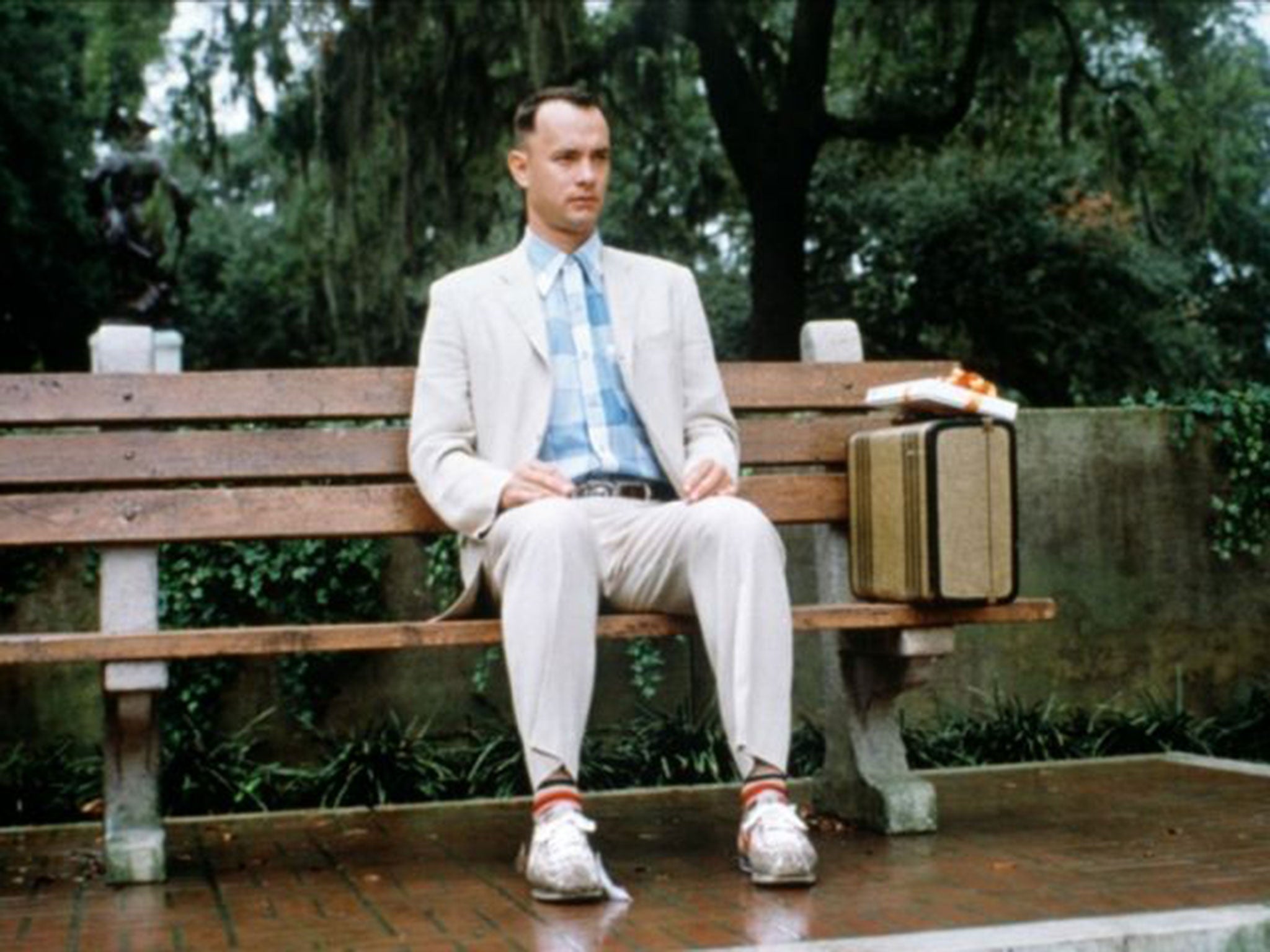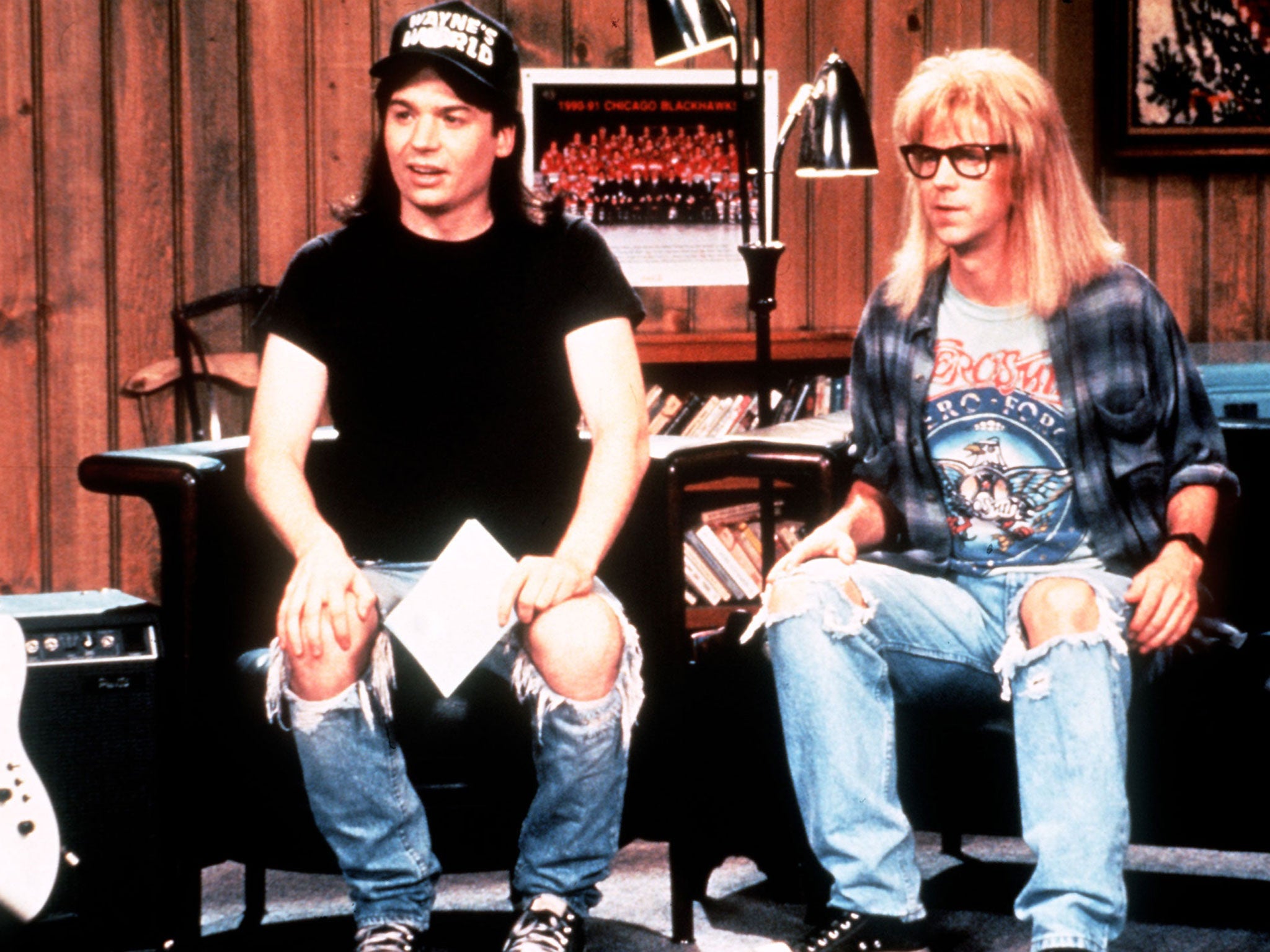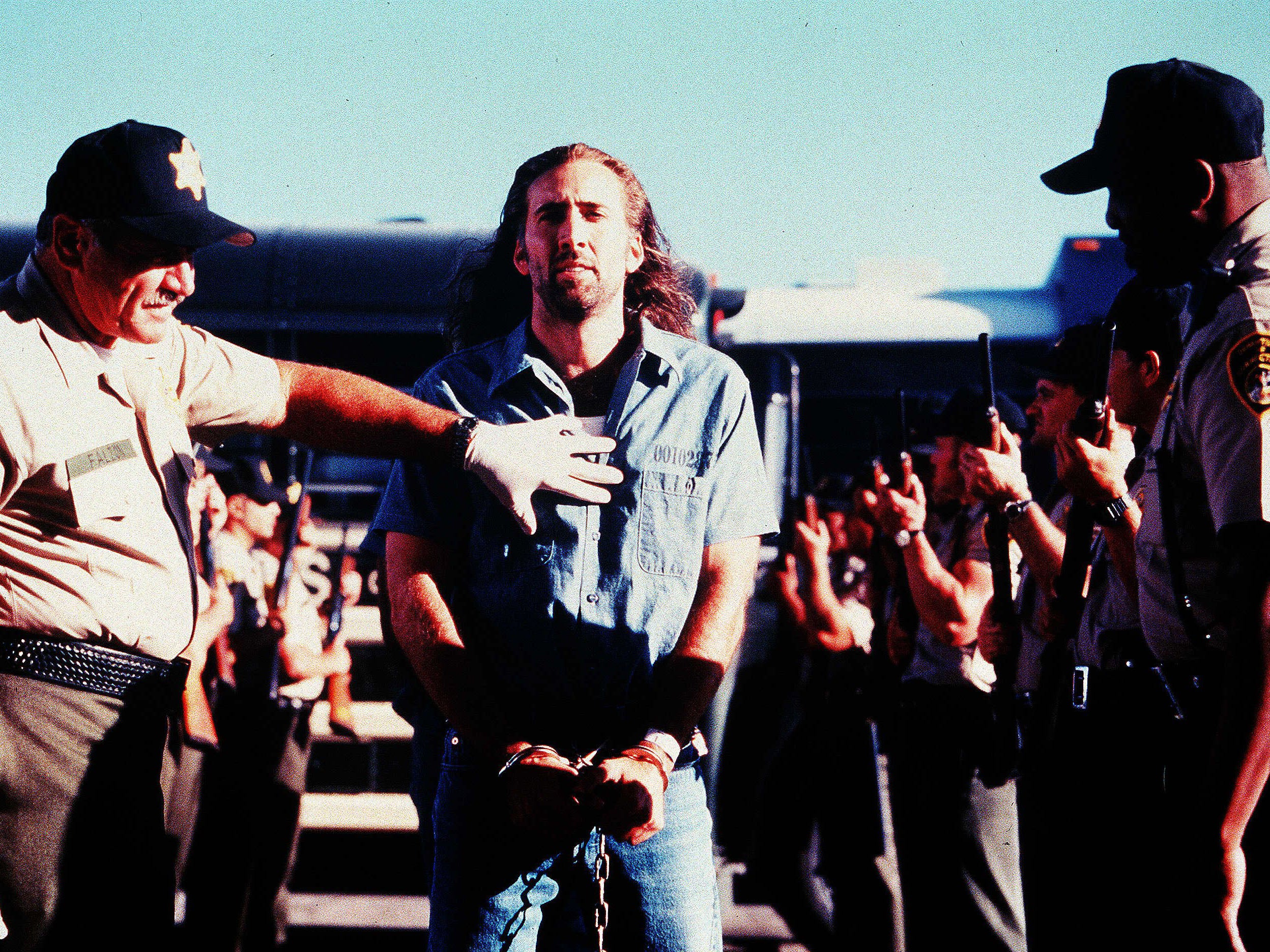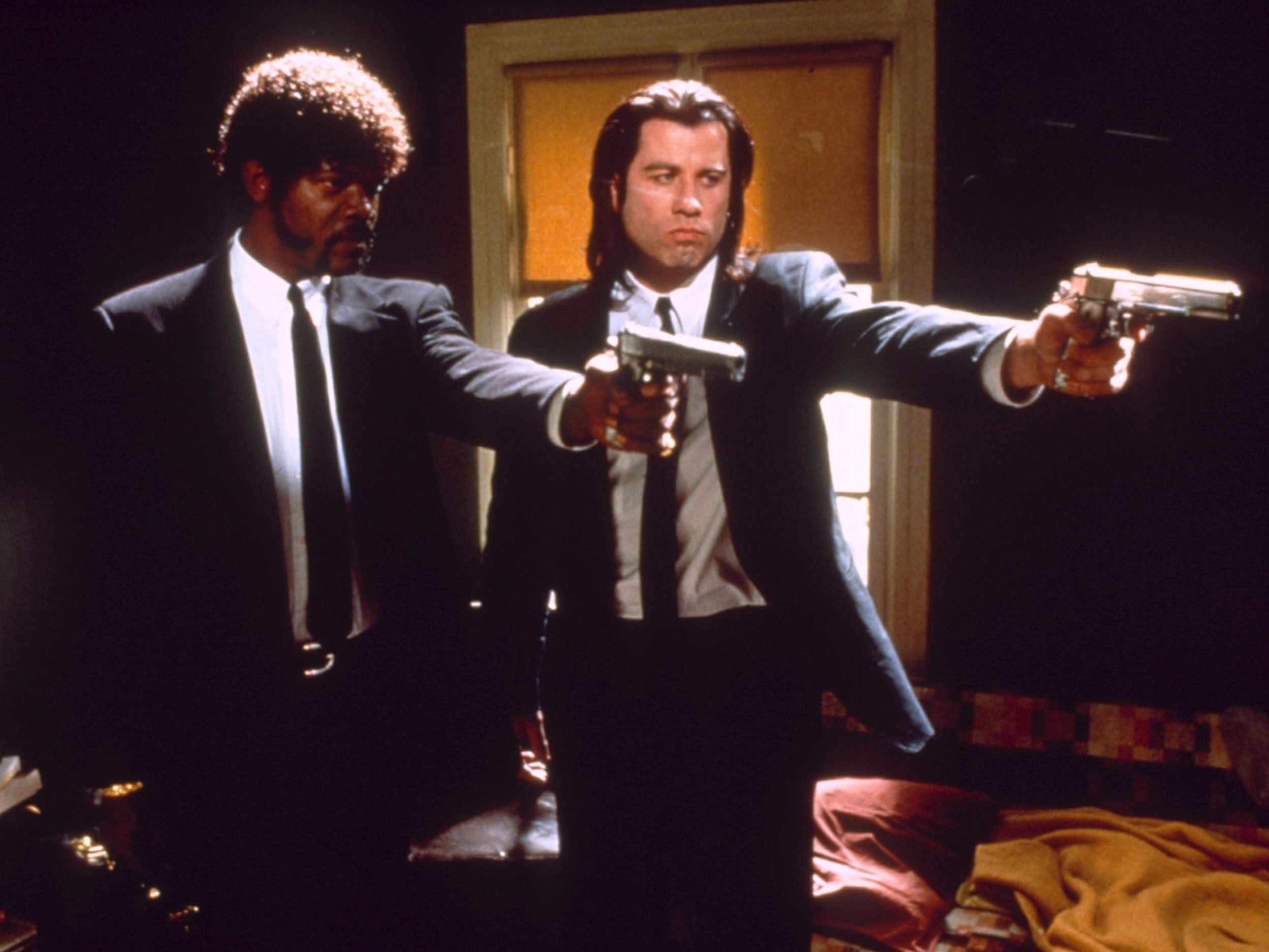Ten films that define the 1990s: From Forrest Gump to Titanic, Trainspotting and Pulp Fiction
Slacker indie dramas, bombastic action blockbusters and meta slasher horrors all played their part in a golden age of commercial Hollywood filmmaking
Your support helps us to tell the story
From reproductive rights to climate change to Big Tech, The Independent is on the ground when the story is developing. Whether it's investigating the financials of Elon Musk's pro-Trump PAC or producing our latest documentary, 'The A Word', which shines a light on the American women fighting for reproductive rights, we know how important it is to parse out the facts from the messaging.
At such a critical moment in US history, we need reporters on the ground. Your donation allows us to keep sending journalists to speak to both sides of the story.
The Independent is trusted by Americans across the entire political spectrum. And unlike many other quality news outlets, we choose not to lock Americans out of our reporting and analysis with paywalls. We believe quality journalism should be available to everyone, paid for by those who can afford it.
Your support makes all the difference.Ah the 1990s. What an absolute golden age. But how best to define the decade in film?
The 10 below are not intended to represent the greatest movies of the 90s, just those that most emphatically capture the spirit of the moment.
This means we’ve had to make some fairly mortifying omissions. Heartfelt apologies to Edward Scissorhands, Dumb and Dumber, Groundhog Day, The Mask, Jumanji, Toy Story, The Lion King, Clueless, Twister, Good Will Hunting and The Full Monty. And Spiceworld.
10. Forrest Gump (1994)
Robert Zemeckis’s tour of recent American history through the eyes of niave Alabama native Forrest (Tom Hanks) owed a debt to Woody Allen’s Zelig (1983) but charmed its way to box office glory.
Its protagonist’s folksy appeal and chocolate box philosophy proved a winner but the film’s ingenious manipulation of newsreel footage to give Forrest a walk-on at the key events of the 1960s, shaking hands with JFK and watching Dr Martin Luther King Jr address the crowds from the steps of the Lincoln Memorial, is arguably its trump card.

The film’s uplifting brand of sentimentality may have paved the way for another period drama, The Shawshank Redemption (1996), ignored in the cinema but a colossal word-of-mouth hit on VHS.
9. Scream (1996)
The teen slasher genre looked exhausted in the mid-90s with many of horror’s most beloved killers like Freddy Kreuger and Jason Vorhees looking all stabbed out after their respective franchises had dragged on to diminishing returns.
But then veteran Wes Craven began his experiments with meta-textuality, realising that audiences were so well acquainted with the “rules” of the genre he could toy with their nerves in an entirely new way.
Giving the format a dry run with Wes Craven’s New Nightmare (1994), in which original Nightmare on Elm Street star Heather Langenkamp plays herself and is terrorised “in real life” by a resurgent Freddy, Craven and writer Kevin Williamson then launched something entirely new.
The murder of Drew Barrymore’s babysitter in the opening minutes of Scream set in motion a refreshing new twist in the suburban slasher film in which all the victims knew what to expect from the masked killer pursuing them with a carving knife. Not that it helped much.
8. Wayne’s World (1992)
Teen slacker films were a mainstay of the 1990s with emerging indie directors Richard Linklater and Kevin Smith making their mark with Dazed and Confused (1993) and Clerks (1994) respectively, offering a grungier, more cynical perspective on adolescent angst than that offered by John Hughes’ protagonists a decade earlier.

Among the most joyous of these was Wayne’s World and its sequel. Starring Mike Myers and Dana Carvey and developing their popular characters from Saturday Night Live, Penelope Spheeris’s comedy follows the two metal-heads as they record a local TV show in Wayne’s parents’ basement in sleepy Aurora, Illinois. They party, almost lose Cassandra (Tia Carrera) to Rob Lowe’s smooth network fixer and meet Alice Cooper – in one of the great self-referential cameos.
7. The Usual Suspects (1995)
Bryan Singer’s hugely influential neo-noir crime drama brought together such rising stars as Kevin Spacey and Benicio del Toro among its line-up of crooks being interviewed by the cops after a drug deal on a docked ship goes badly awry.
The hunt for the mythic, possibly Satanic or even entirely fictional gangster Keyser Soze would popularise the twist-ending that The Sixth Sense (1999) later deployed to such impressive effect, a 90s narrative fad as of-its-period as Scream’s meta games.
6. Se7en (1995)
Spacey was on even more sinister form in David Fincher’s superb serial killer noir, in which Brad Pitt and Morgan Freeman investigate a series of murders carried out to mirror the Seven Deadly Sins.
The decade had begun with Jonathan Demme’s masterly The Silence of the Lambs (1991) and Fincher’s film followed in a similar vein, combining a procedural investigation with a flair for vicious body horror. Its bleakly stylised cityscape of perpetual rain perhaps borrowed from Blade Runner (1982) or The Crow (1994) but the pay-off, in open country as the sun beats down, is all the more devastating for the contrast.
Fincher would go on to make Fight Club and Spacey American Beauty in 1999, both equally decade-defining works.
5. Con Air (1997)
In the wake of the Alien and Terminator franchises and John McTiernan’s Die Hard (1989), 90s Hollywood had action spectaculars down to a fine art.
Point Break (1991) and Speed (1995) had made an unlikely alpha hero out of teen idol Keanu Reeves – a path that would lead him to The Matrix (1999). Eccentric indie star Nicolas Cage would follow suit in Con Air and The Rock (1997) for super-producer Jerry Bruckheimer

Here, Cage stars as the improbably named Cameron Poe, a Marine imprisoned for manslaughter after killing a man in a brawl to protect his pregnant wife, who is forced to fend for himself when a collection of American’s most dangerous felons hijack a plane transporting them cross-country. John Cusack, John Malkovich, Ving Rhames and Steve Buscemi are among an enviable supporting cast.
The moral of the story? Never put all your eggs in one basket, especially if they’re rotten in the first place.
4. Four Weddings and a Funeral (1994)
British cinema was dominated for much of the 1990s by the socially-conscious dramas of Mike Leigh and Ken Loach, Merchant Ivory literary adaptations and films about the rejuvenation of post-industrial northern towns through football, brass bands, stripping or ballet.
The glorious exception to this was Richard Curtis, whose sweary, unapologetically public school take on romantic comedy was never bettered than in Four Weddings, a massive international hit centred on Hugh Grant falling for mysterious American Andie McDowell at a series of summer engagements.
Yes, “Is it raining? I hadn’t noticed” is an absurd line and McDowell is wooden as a kitchen table but there are few moments more moving in all of cinema than John Hannah’s recital of WH Auden’s poem “Funeral Blues” in mourning for his late partner Gareth (Simon Callow), dead of a heart attack after overdoing the Highland Fling.
Stuck in mid-market rom-coms since the turn of the millennium, arguably the true greatness of Grant is only now being realised, thanks to a string of hilarious performances the old devil has delivered lately in Florence Foster Jenkins (2016), Paddington 2 (2017) and this year’s BBC serial A Very English Scandal.
3. Titanic (1997)
The tail-end of the 20th century was also a golden age for blockbusters, Steven Spielberg having set the template with Jaws in 1975 and repeated the trick many times since.
Jurassic Park (1993), Independence Day (1996) and Men in Black (1997) were all monster hits that pushed the envelope when it came to the adoption of CGI special effects, paving the way for Marvel’s current dominance of big-budget cinema.

But there was no bigger hit in the 1990s than James Cameron’s tragic historical romance, capitalising on the feverish appetite for the young Leonard DiCaprio among teenage girls after his breakout role in Baz Luhrmann’s Romeo + Juliet a year earlier.
The recreation of the notorious sinking of the HMS Titanic in the Atlantic on 15 April 1912 was an extraordinary technical achievement but it was the cross-class love affair between Jack (DiCapro) and Rose (Kate Winslet) that made the film a sensation – and the highest-grossing movie of all time at that point.
Celine Dion’s theme, “My Heart Will Go On”, was equally unavoidable in 1997.
2. Trainspotting (1996)
At the other end of the market from Four Weddings was the Britpop swagger of Danny Boyle’s Trainspotting, adapting the unflinching Irvine Welsh novel about nihilistic heroin addicts in Edinburgh.
Ewan McGregor, so impressive in Boyle’s earlier Shallow Grave (1994), became a super-star while the soundtrack – featuring Underworld, Iggy Pop and Lou Reed – was epoch-making. Robert Caryle’s enraged, pint-throwing Begbie was equally unforgettable.
1. Pulp Fiction (1994)
The quintessential 90s filmmaker is surely Quentin Tarantino, the former video store clerk who burst onto the scene with the low budget, ultra-violent, classically stylish gangster caper Reservoir Dogs (1992), recounting the aftermath of a heist gone wrong.

Tarantino delivered the impossible when his follow-up proved both a critical and commercial smash.
An interconnected collage of stories about Los Angeles low-lifes and small-time crooks told in non-linear order, Pulp Fiction was instantly iconic. It’s hard to imagine a time when the image of Uma Thurman and John Travolta twisting to Chuck Berry at Jack Rabbit Slims was not part of the culture.
Once again, the director revealed his unerring eye for casting: Travolta was reborn after a decade in the doldrums, Harvey Keitel will forever be Winston Wolf and the ubiquity of Samuel L Jackson that abided for the next 20 years started right here.

Join our commenting forum
Join thought-provoking conversations, follow other Independent readers and see their replies
Comments